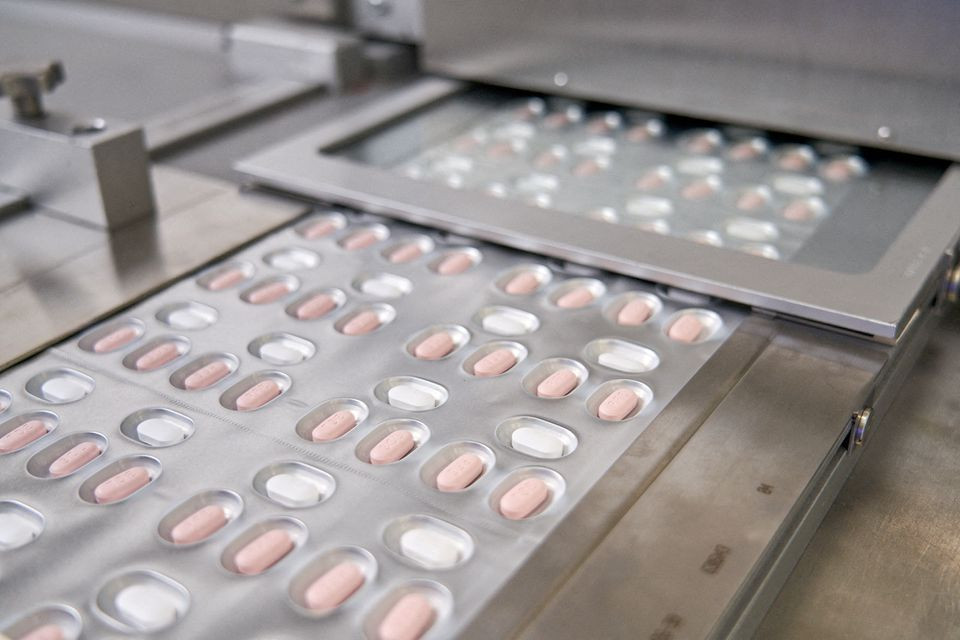
Britain approves Pfizer's antiviral Covid-19 pill
Britain is scrambling to build its defences amid a record surge in Covid-19 cases in the winter season
Britain has approved Pfizer's (PFE.N) Covid-19 pill for adults who have mild to moderate infection and are at high risk of their illness worsening, its second easily administered antiviral against the coronavirus.
Britain is scrambling to build its defences amid a record surge in Covid-19 cases in the winter season as the Omicron variant of the virus spreads quickly.
Based on data, the pill, Paxlovid, is most effective when taken during the early stages of Covid-19, Britain's Medicines and Healthcare products Regulatory Agency (MHRA) said on Friday, recommending it be used within five days of the first symptoms.
Read more: Pfizer says its Covid pill appears to work against omicron variant
Pfizer this month said Paxlovid showed near 90% efficacy in preventing hospitalisations and deaths in high-risk patients, and recent lab data suggests the drug retains its effectiveness against the fast-spreading Omicron variant of the coronavirus.
The MHRA said it is working with Pfizer, which makes one of the leading Covid-19 vaccines with German partner BioNTech (22UAy.DE), to track Paxlovid's effectiveness against Omicron.
"We now have a further antiviral medicine for the treatment of Covid-19 that can be taken by mouth rather than administered intravenously. This means it can be administered outside a hospital setting," MHRA chief June Raine said in a statement.
Also read: Pfizer-BioNTech 33% effective against Omicron strain: study
Paxlovid is made of two active substances which come as two separate pills taken twice a day together for five days. Britain has secured more than 2.75 million courses of the antiviral treatment.
The Pfizer tablets are part of a class of drugs called protease inhibitors currently used to treat HIV, hepatitis C and other viruses, which work by stopping the virus from replicating.
Rival Merck's (MRK.N) Covid-19 pill was approved by Britain last month, but that drug only reduced hospitalisations and deaths in its clinical trial of high-risk patients by around 30%.




1730561201-0/Express-Tribune-Web-(18)1730561201-0-270x192.webp)
1725355010-0/BeFunky_-(15)1725355010-0-270x192.webp)









COMMENTS
Comments are moderated and generally will be posted if they are on-topic and not abusive.
For more information, please see our Comments FAQ